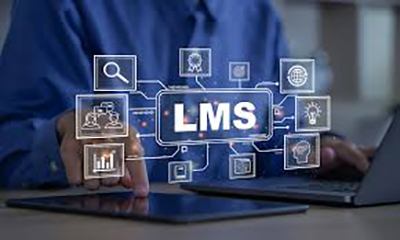German: Lernmanagementsysteme
Also known as: Learning Platforms, eLearning Systems, LMS
Learning Management Systems (LMS) are comprehensive software platforms designed to support the planning, administration, delivery, and tracking of learning processes in educational institutions and corporate environments.
Core Functions
According to Schulmeister (2003) and Breiter et al. (2005), a robust LMS typically includes:
-
User Management (enrollment, roles, groups)
-
Course Management (creation, structure, scheduling)
-
Learning Content Delivery (documents, media, assessments)
-
Role and Rights Models (admin, instructor, learner roles)
-
Communication Tools (forums, chats, messaging – both synchronous & asynchronous)
-
Tracking & Reporting (activity logs, performance analytics)
Applications
In Higher Education:
-
Course and event administration
-
Examination and assessment coordination
-
Integration with university information systems
-
Support for blended learning formats
In Corporate Training:
-
Personnel development and succession planning
-
Management of internal and external training programs
-
Skill gap analyses and competency management
-
Support for compliance training and onboarding
🔗 See also: eLearning, Competency Management, Human Resource Development
LMS vs. LCMS
-
LMS (Learning Management System): Focuses on learning delivery, tracking, and user interaction
-
LCMS (Learning Content Management System): Emphasizes content creation, storage, and reuse
Many modern platforms combine both functions for end-to-end learning solutions.
Integration Capabilities
-
Interfaces with HR systems and ERP platforms (e.g., SAP)
-
Enables creation of employee learning biographies and qualification profiles
-
Supports automated training needs analysis for targeted development
Examples of Learning Tools and Formats Supported
-
Online courses (SCORM, xAPI)
-
Web-based training (WBT)
-
Face-to-face training scheduling
-
Entry and final tests
-
Online seminars / webinars
-
User activity tracking (e.g., for compliance or performance reviews)
Strategic Role in Organizations
-
Drives digital transformation in learning and development
-
Supports lifelong learning and continuous skill development
-
Enhances training efficiency and learning personalization






![15 Employee Offboarding Templates That Save Hours of HR Time [Free Downloads] 15 Employee Offboarding Templates That Save Hours of HR Time [Free Downloads]](https://i1.wp.com/www.hrcloud.com/hubfs/Header.png?w=150&resize=150,100&ssl=1)
